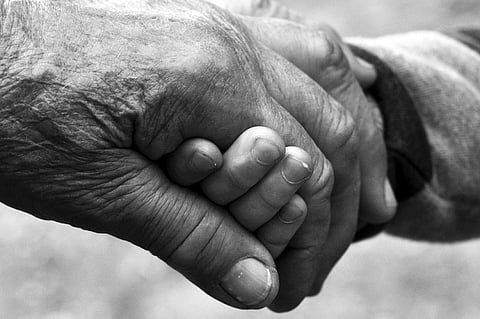

A Pune family court recently gave an unconventional order, which battles the perception that grandparents are always free and willing to babysit their grandchildren.
Hearing the plea for maintenance by a mother of two in her 40s, the court said that the primary duty to look after infant children falls on parents, and not grandparents.
“Grandparents may be there to support, guide and assist in raising the children. However, they should not be burdened to babysit grandchildren as their primary duty, by compromising on their relaxation, entertainment and travel plans,” the court observed.
The woman in question held her parents-in-law responsible for having to place her children in a crèche. The court said that grandparents could not be held accountable if the children needed to be left in a crèche.
The parents of the children in question are estranged and had gotten married about 20 years ago. The woman had approached the family court in 2012 when both her children were minors. She had accused her husband of not providing for them financially, which compelled her to resume her job four months after she first gave birth.
She further alleged that a few months after taking care of her infant, her in-laws were away on travel to visit their second son, which is why the woman had to leave her children in the crèche. She said that she had paid for the crèche facilities, and her husband had not taken care of the kids’ expenses in the last 10 years.
The Pune court pointed out that a common perception in a majority of Indian families was that “grandparents are a substitute for nannies”. However, this should not be imposed as a duty on grandparents. “After performing all the duties and the responsibilities of life in their young and adult age, old age is the time for an old couple to live for themselves. There can be no doubt that the grandchildren are one of the precious endowments an old couple looks forward to. But this endowment should not become their burden,” the court said.
The court added that it was convenient to forget that grandparents have their own lives to live, and need their own “space, time, entertainment, pleasure and rest.” “It is time to look into the specific needs of the aged in our society,” the court observed.
The court finally ruled that the father of the children should bear equal monetary responsibility for their education and continue paying a maintenance of Rs 10,000 for each child – as he had been mandated to by an interim 2012 order. He would have to pay these expenses till his son is no longer a minor and till his daughter is married. The mother of the children, meanwhile, was directed to pay for the hobbies and extra-curricular activities of the kids.
Grandparents agree
Bengaluru-based VP Manohar, a grandparent to four children, says that it is often more an expectation from grandparents than a choice to take care of grandkids.
“It’s not easy, especially if you’re not fit or agile enough,” he says. “And it is a full time job if the kids are left with you… There is no time for anything else.”
While he does not face a problem with his own children, who understand his need for space and time, he knows several of his friends’ families who do not get why they should give their parents this space.
“They tell me how they are expected to be available at all times to babysit the grandchildren. It’s not like we do not have a social life of our own, or things to do with our time,” he says.
Akila Raman, a 58-year-old who works with Storytrails in Chennai, raises another pertinent point: “A child raised by grandparents is very different from a child raised by parents. The former will have a different worldview, and may be a misfit into today’s world because I am not as clued in with today’s norms as my children are.”
Akila adds that while she loves it when her three-year-old grandson comes over, she is also glad when he leaves. “I have a life of my own, and I love my job. And though we love taking care of our grandson, it is also a tremendous strain. I have raised my two daughters and set them out into the world. The idea of raising one more now does not fit well with me.”
That being said, Akila admits that she would pitch in if her daughter and son-in-law were in a position where not working full-time was not an option and there wasn't enough time to tend to their child. "If that was the case, I would be happy to pitch in and help them out. But here, where I have the choice of living my own life and they have the resources to take care of their son, I don't see why they should not be the primary caregivers."
At the end of the day, both Manohar and Akila say that babysitting or taking care of grandchildren should be a choice, not an obligation.